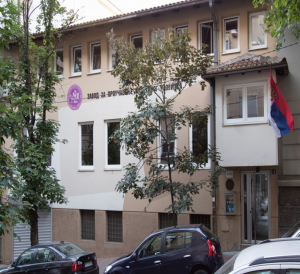Belgrade, Serbia
The Danube is one of the verticals of the Serbian culture. It connects Serbia with Central Europe, from where fruitful cultural influences, but also conquests, came throughout history. It can be said that it’s one of the symbols of the Serbian culture being a part of Europe.
The Danube also connects us with Eastern Europe, that is, with other Slavic and Orthodox Christian countries. This is the route that Slavs took to move into the Balkans, according to the still-ruling theories.
The oldest known developed cultural entity on the territory of Serbia, the Neolithic culture of Lepenski Vir, originated on the Danube. In addition, the capital of Serbia, Belgrade, is located on the Danube, with the Kalemegdan fortress testifying to the continuity of the Roman, Serbian medieval, Turkish and Austrian past, which is an essential part of the cultural heritage of contemporary Serbia. The last capital of the medieval Serbia, Smederevo, whose fall marked the beginning of the centuries of slavery under the Turks, is also located on the Danube.
Serbian culture rests on other verticals, too, connecting it with the post-Byzantine, Mediterranean, and Oriental cultural and geographical units. The Danube vertical and cultural cooperation with other Danubian countries help both Serbia and everyone else understand and remember the richness, stratification, and openness of Serbian culture that was, often under various political influences, forgotten. They also help in seeing Serbian culture as an important and vibrant segment of European culture and polyphonic European identity.
Center for Studies in Cultural Development
The Center for Studies in Cultural Development (CSCD) is a unique institution in the Republic of Serbia, which engages in developmental, applied, and action research across the social sciences and humanities in the fields of culture and media, as well as the accompanying activities: strategic planning, publishing, organizing of scientific, professional, and international events, and similar projects. From its founding in 1967, CSCD has been oriented towards international collaboration in all segments of its work. A specific highlight includes a decades-long collaboration with UNESCO.
The multidisciplinary team of the CSCD is comprised of doctors of philosophy in the fields of sociology, psychology, ethnology, anthropology, cultural management, media studies, cultural theory, art studies, and also collaborators in the fields of cultural policy, art history, archeaology, cultural tourism, film/video production, philology, literature, history, political science, ecology, economics, and law.
The main research line at CSCD is directed towards cultural participation, cultural and natural heritage in the function of sustainable development, as well as creative industries and cultural tourism. A significant corpus of research projects are related to problems in the domain of human resources and information technology, as well as the general conditions of cultural work (material resources, financing, legislative).
The electronic database e-Kultura (www.e-kultura.net) is one of the main continuous projects of CSCD and the primary source for official cultural statistics in Serbia. This database includes information on more than 2,000 cultural organisations in Serbia (museums, archives, institutes for the protection of cultural monuments, theatres, galleries, cinemas, citizen associations, etc.). In a regular yearly cycle, data is collected about programs, audience and users. In cooperation with the Statistical Office of the Republic of Serbia, statistical reports are regularly made available to the public.
The exceptional significance of CSCD is reflected in the fact that its research and expertise is used for creating, monitoring, and evaluating strategic cultural policy documents. On a national level, CSCD played an important role in creating the proposal for the Strategy for the Development of Culture in the Republic of Serbia from 2018 to 2028, also monitoring the implementation of the action plan of the government of the Republic of Serbia in the area of culture. In addition, experts at CSCD were engaged in creating a series of local strategy plans.
Since 1968 CSCD has published Kultura – Review for the theory and sociology of culture and for the cultural policy, which is a highly-ranked academic journal on a national level. The journal is conceived to enable and encourage critical thinking on current themes in the fields of culture and media through multidisciplinary approaches. The journal redaction is composed of respected experts and academics. Since the beginning Kultura has been open to all creative ideas present both in the domestic sphere and globally.
CSCD supports all aspects of cultural creativity and communication and provides a space for encountering cultural actors. In these spaces academic and professional conferences, discussions, and debates are held, which gather representatives of domestic and foreign cultural and academic institutions, as well as representatives of the civil and economic sectors.
As an expert institution, CSCD has a diversified publishing portfolio, and increased attention is dedicated to digital media and placing cultural content on the internet. One of the projects that CSCD participates in is the creation of a national cultural portal. Center for Studies in Cultural Development also has a Library with a rich library collection of over 3,000 monographs and periodicals.
Center for Studies in Cultural Development
Rige od Fere 4, 11000 Beograd / Belgrade Tel: +381 11 2637 565
Fax: +381 11 2638 941
info@zaprokul.org.rs http://zaprokul.org.rs/ http://e-kultura.net/
Photos : Center for Studies in Cultural Development, Archive


